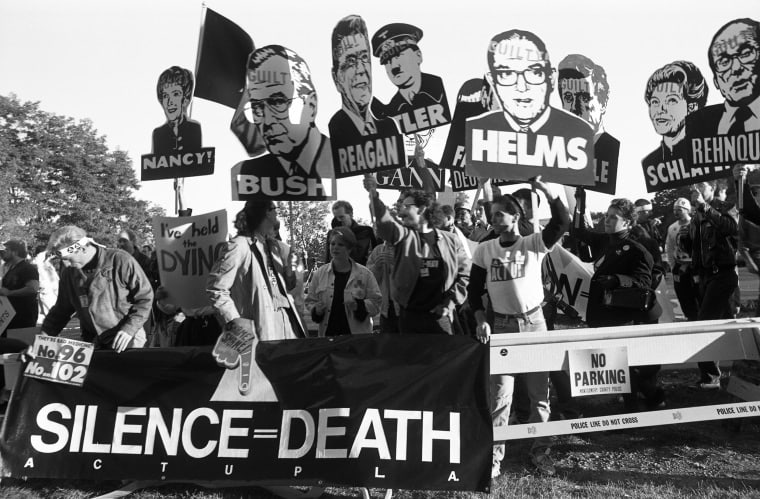HIV/AIDS has had a significant impact on the LGBTQ+ community since the epidemic began in the 1980s. Not only has it affected the physical and mental health of individuals, but it has also had a profound impact on their financial well-being. The high cost of medication and medical care, coupled with discrimination and stigma, has left many LGBTQ+ individuals struggling to make ends meet. In this article, we will discuss the financial impact of HIV/AIDS on the LGBTQ+ community and explore ways to address this issue.
The Cost of Medication and Medical Care
One of the most significant financial impacts of HIV/AIDS on the LGBTQ+ community is the high cost of medication and medical care. According to a study by the Kaiser Family Foundation, the average cost of HIV medication in the United States is over $20,000 per year. For those who do not have health insurance, this cost can be overwhelming.
In addition to medication costs, people living with HIV/AIDS often require frequent medical care, including doctor visits, lab tests, and hospital stays. These costs can quickly add up, putting a strain on an individual’s finances. As a result, many LGBTQ+ individuals living with HIV/AIDS may have to forgo other essential expenses, such as housing or food, to cover their medical expenses.
Employment Discrimination
Another factor that contributes to the financial impact of HIV/AIDS on the LGBTQ+ community is employment discrimination. LGBTQ+ individuals living with HIV/AIDS may face discrimination in the workplace, making it difficult to find and maintain employment. This discrimination can lead to a loss of income and a lack of access to employer-sponsored health insurance.
Furthermore, HIV/AIDS is still stigmatized in many workplaces, and many people living with the virus fear discrimination if they disclose their status. This fear can lead to a lack of access to support and resources, which can further exacerbate the financial impact of the disease.
Housing Insecurity
Housing insecurity is another issue that affects many LGBTQ+ individuals living with HIV/AIDS. High medical costs and discrimination can make it challenging to afford stable housing. Many people living with HIV/AIDS may be forced to rely on government assistance programs, such as Section 8 housing vouchers, to make ends meet. However, these programs often have long waiting lists and may not provide adequate support.
Additionally, discrimination in the housing market can make it difficult for LGBTQ+ individuals living with HIV/AIDS to find safe and affordable housing. Landlords may refuse to rent to them or charge higher rents, making it difficult to maintain stable housing.
Solutions
There are several solutions to address the financial impact of HIV/AIDS on the LGBTQ+ community. One solution is to increase access to affordable healthcare. This can be achieved through expanding Medicaid, increasing funding for HIV/AIDS research, and supporting community health clinics.
Another solution is to address employment discrimination by creating and enforcing laws that protect LGBTQ+ individuals from discrimination in the workplace. This includes banning discrimination based on sexual orientation and gender identity and providing legal recourse for those who experience discrimination.
Finally, it is essential to address housing insecurity by increasing access to affordable housing and addressing discrimination in the housing market. This can be achieved through expanding housing assistance programs, providing legal support for those who experience discrimination, and supporting organizations that provide housing assistance to LGBTQ+ individuals living with HIV/AIDS.
Conclusion
The financial impact of HIV/AIDS on the LGBTQ+ community is a significant issue that requires attention and action. The high cost of medication and medical care, employment discrimination, and housing insecurity all contribute to the financial burden that many LGBTQ+ individuals living with HIV/AIDS face. However, through increasing access to affordable healthcare, addressing employment discrimination, and increasing access to affordable housing, we can alleviate some of the financial burden and support the financial well-being of LGBTQ+ individuals living with HIV/AIDS. It is essential to work together as a society to ensure that everyone has access to the resources and support they need to live healthy and fulfilling lives.
Furthermore, it is essential to raise awareness about the financial impact of HIV/AIDS on the LGBTQ+ community. By educating the public and policymakers about the challenges faced by LGBTQ+ individuals living with HIV/AIDS, we can increase support for policies and programs that address these issues.
Finally, it is crucial to continue research into HIV/AIDS and develop new treatments and medications that are more affordable and accessible to all. Advances in medical technology have made it possible for people living with HIV/AIDS to live longer and healthier lives, but these advances are often out of reach for many individuals due to high costs.
In conclusion, the financial impact of HIV/AIDS on the LGBTQ+ community is a complex issue that requires attention and action from individuals, communities, and policymakers. By working together to increase access to affordable healthcare, address employment discrimination, and increase access to affordable housing, we can support the financial well-being of LGBTQ+ individuals living with HIV/AIDS. It is essential to continue raising awareness and advocating for policies and programs that support the needs of this vulnerable population, and to continue research into HIV/AIDS treatments and medications that are accessible to all.

